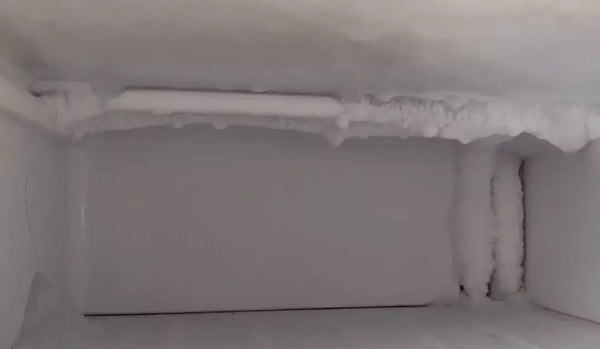When you're on the road in your RV, having a reliable refrigerator is essential for keeping your food fresh and your drinks cold. However, encountering an RV refrigerator that runs but fails to cool can be a frustrating experience. In this article, we'll explore the common reasons behind this issue and provide practical solutions to get your fridge back in working order.
Understanding Your RV Refrigerator
RV refrigerators typically operate in two main ways: absorption and compressor. Absorption refrigerators use ammonia and water to cool, while compressor refrigerators function similarly to traditional home refrigerators. Understanding how your RV fridge works can help diagnose the issue when it's running but not cooling effectively.
Common Reasons Your RV Refrigerator Is Running but Not Cooling
1. Power Supply Issues
One of the first things to check is the power supply. If your refrigerator is running but not cooling, it might not be receiving enough power.
- Electric Models: Ensure it is properly plugged into an outlet and that the circuit breaker hasn’t tripped.
- Gas Models: If your fridge uses propane, check that the gas is turned on and the tank is full.
- Battery Voltage: If running on battery, ensure it's fully charged. Low voltage can affect performance.

2. Incorrect Thermostat Settings
Sometimes, the solution can be as simple as an incorrect thermostat setting. Check if the thermostat is set to the desired cooling level. It might have been accidentally adjusted to a higher temperature.
3. Blocked Airflow
Airflow is crucial for any refrigerator’s cooling process. Blocked vents can hinder its ability to cool properly.
- Interior Obstructions: Ensure that food items are not blocking the vents inside the refrigerator.
- Exterior Vents: Check the outside vents for debris or dirt buildup that could obstruct airflow.

4. Cooling Unit Issues
- Absorption Refrigerators: If your RV uses an absorption refrigerator, a common problem is an ammonia leak, which usually has a distinct odor resembling rotten eggs. Look for signs of ammonia leaks (a rotten egg smell) or other issues.
- Compressor Refrigerators: For compressor models, listen for unusual noises. If the compressor is running but not cooling, it might be failing.
5. Temperature Differential
The ambient temperature can also affect your RV refrigerator's performance.
- High Outside Temperatures: If it’s extremely hot outside, the refrigerator may struggle to maintain a cool internal temperature. This is particularly true for absorption models, which are less effective in high heat.
You might also like: How Ambient Temperature Impact on Car Refrigerator Cooling Performance
6. Leveling Problems
RV refrigerators are designed to operate best when the RV is level. If your RV is unlevel, it can affect cooling efficiency.
- Use Leveling Blocks: Ensure your RV is leveled using blocks to keep the refrigerator operating optimally.
7. Frost Buildup
Excessive frost buildup can obstruct airflow inside the fridge, leading to poor cooling performance.
- Defrost Regularly: If you notice significant frost, defrost the refrigerator completely and clean it before restarting.

8. Maintenance and Cleaning
Regular maintenance is key to ensuring your RV refrigerator operates efficiently.
- Clean Condenser Coils: Dust and debris can accumulate on the condenser coils, so clean them regularly for optimal performance.
- Check Seals: Inspect door seals for damage. If they are not airtight, cold air can escape, leading to poor cooling.
You might also like: How to Maintain and Clean a Car Refrigerator?
9. When to Seek Professional Help
If you’ve gone through these troubleshooting steps and your refrigerator is still not cooling, it may be time to consult a technician. Complex issues, such as those related to the cooling unit or compressor, often require professional assistance.
Conclusion
Having an RV refrigerator that runs but does not cool can be a significant inconvenience during your travels. By understanding the common reasons behind this issue and following the troubleshooting tips outlined above, you can identify and potentially fix the problem. Regular maintenance and proper usage are crucial for keeping your RV refrigerator in top working condition, ensuring that you enjoy fresh food and cold beverages on your adventures.
FAQs
Q1: How often should I check my RV refrigerator?
A1: Regular checks before and during trips can help ensure it operates properly. Monthly maintenance is also advisable.
Q2: Can I use my RV refrigerator while driving?
A2: Yes, but make sure it's securely closed and that any propane models are set up correctly to avoid hazards.
Q3: What temperature should my RV refrigerator be set to?
A3: Ideally, the refrigerator should be set between 32°F and 40°F (0°C to 4°C) for optimal cooling.
Q4: How can I prevent frost buildup in my RV refrigerator?
A4: Regularly defrost your refrigerator and ensure that the door seals are tight.
Q5: Is it normal for my RV refrigerator to make noise?
A5: Some noise is normal, especially for compressor refrigerators. However, loud or unusual noises may indicate a problem.







